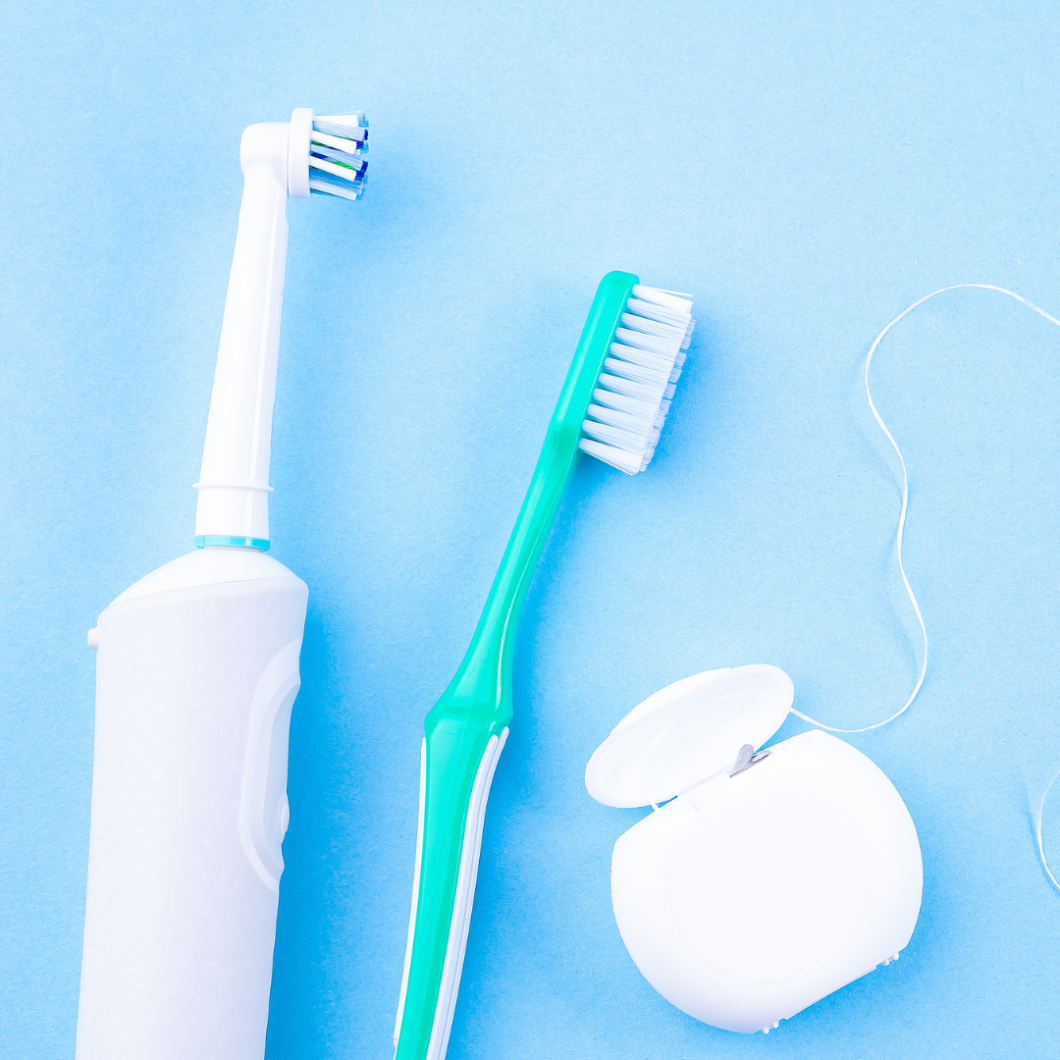Selecting the right toothbrush is a crucial step in maintaining good oral hygiene. With so many options available, deciding between a manual and an electric toothbrush can feel overwhelming. In this guide, we’ll explore the differences between manual and electric toothbrushes, discuss their respective benefits, and provide recommendations for specific dental needs. By the end, you’ll have a clearer understanding of which toothbrush might be best suited for you and your smile.
Manual vs. Electric Toothbrush: Key Differences
Both manual and electric toothbrushes are effective for cleaning teeth and gums when used correctly. However, they differ in design, technique, and features, which can influence your overall brushing experience and effectiveness.
- Manual Toothbrush
Manual toothbrushes have been around for centuries and are easy to use, affordable, and widely available. They offer basic brushing functionality without the bells and whistles of electric options. - Electric Toothbrush
Electric toothbrushes are battery-operated or rechargeable and use automatic oscillating, rotating, or sonic movements to clean the teeth. Many models come with added features such as built-in timers, multiple brushing modes, and pressure sensors, making them a high-tech option for those looking for enhanced plaque removal.
Benefits of Manual Toothbrushes
- Cost-Effective
Manual toothbrushes are usually more affordable than electric models, making them a budget-friendly option for those who don’t want to invest in a pricier brush. - Easy to Use and Transport
Without the need for charging or batteries, manual toothbrushes are easy to use and ideal for travel. They’re also lightweight and don’t take up much space. - Wide Variety of Options
Manual toothbrushes come in various shapes, bristle types, and sizes, allowing you to find the one that’s most comfortable for you. - Control Over Pressure
With a manual toothbrush, you control the brushing pressure entirely, which can be an advantage for people with sensitive gums or those prone to over-brushing.
Benefits of Electric Toothbrushes
- Better Plaque Removal
Studies show that electric toothbrushes, especially those with rotating-oscillating or sonic technology, are more effective at removing plaque than manual brushes, reducing the risk of gum disease. - Built-In Timers
Most electric toothbrushes come with a two-minute timer to help ensure you’re brushing for the recommended amount of time, as well as reminders to move to different areas of the mouth. - Ease of Use for People with Limited Mobility
Electric toothbrushes can be beneficial for those with arthritis, hand or wrist pain, or other mobility issues, as they require less physical effort and do most of the work with automatic movements. - Reduced Risk of Over-Brushing
Many electric toothbrushes have pressure sensors that alert you if you’re brushing too hard, helping protect your gums and enamel from damage. - Fun for Kids
Some electric toothbrushes designed for kids come with interactive apps or games, making brushing more enjoyable and encouraging better habits for children.
Recommendations for Specific Dental Needs
- For Sensitive Teeth and Gums
Consider a soft-bristled manual toothbrush or an electric toothbrush with adjustable modes. Many electric brushes have a “sensitive” mode that gently cleans without irritating sensitive areas. - For Plaque and Tartar Buildup
If you’re prone to plaque or tartar buildup, an electric toothbrush with rotating or oscillating technology can be more effective at removing plaque than a manual brush. - For Orthodontic Patients (Braces)
Electric toothbrushes with smaller brush heads can navigate around braces more easily. Some also have specialized brush heads designed for orthodontic care, ensuring a thorough clean in hard-to-reach areas. - For People with Limited Mobility
Electric toothbrushes can be an excellent choice for anyone with arthritis or other mobility limitations, as they require less physical effort. - For Kids
Kids’ electric toothbrushes with engaging features, like colorful designs or built-in games, can make brushing a fun and consistent habit. Many electric toothbrushes also come with child-sized brush heads for smaller mouths.
How to Choose the Right Toothbrush for You
- Consider Your Oral Health Needs
Think about any specific dental needs, such as sensitive gums, orthodontics, or plaque buildup, and choose a toothbrush that meets these requirements. - Evaluate Your Budget
While manual toothbrushes are more affordable upfront, electric toothbrushes can provide long-term value with enhanced features and more effective cleaning. - Consult with Your Dentist
Your dentist or dental hygienist can provide personalized recommendations based on your oral health. They may suggest a particular type or brand of toothbrush for your specific needs. - Prioritize Comfort and Ease of Use
Whichever toothbrush you choose, it’s essential that you feel comfortable using it. Try out different options to see which one feels most natural for your brushing routine.

